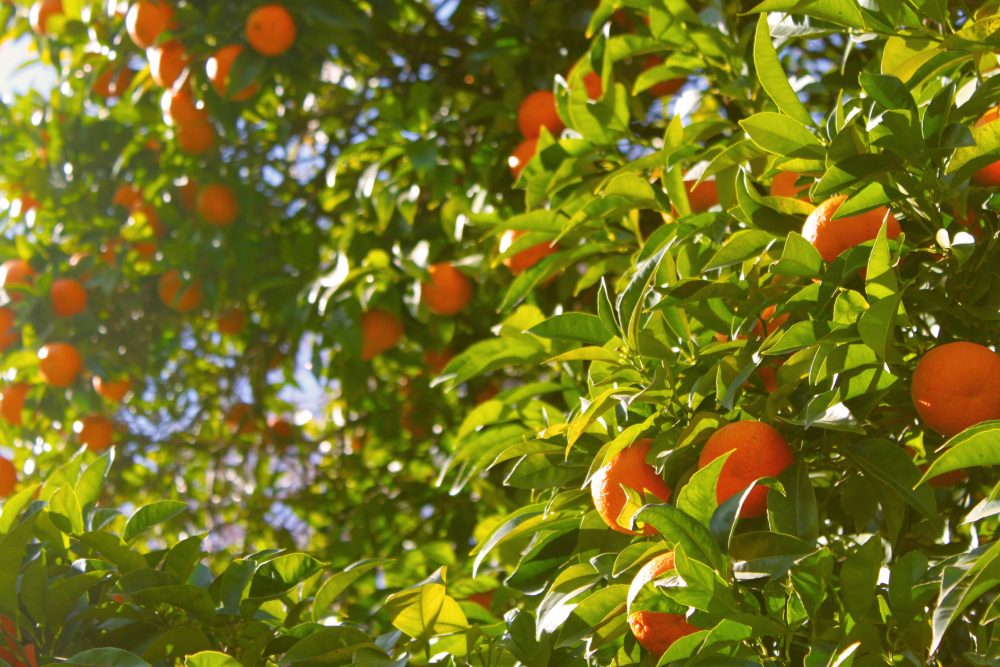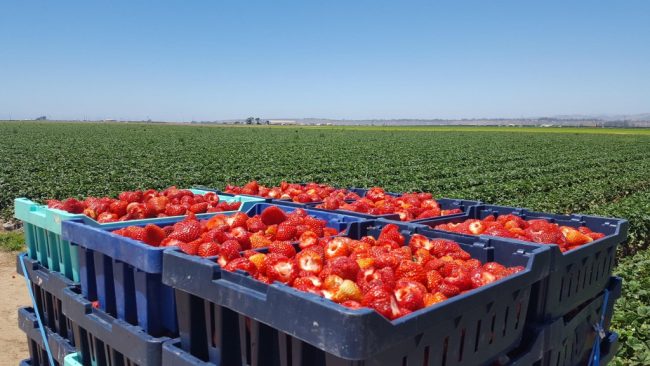Alliance for Food and Farming Supports Industry
Alliance for Food and Farming Works Hard for the Produce Industry
By Patrick Cavanaugh, Editor
Since 1989, the Alliance for Food and Farming based in Watsonville has constantly been on guard for the national produce industry. They fight against misinformation on conventional farming, all while supporting organic production.
Teresa Thorne has been with the Alliance since it began and now serves as Executive Director. She is assisted in all aspects of running the non-profit organization by Rosi Gong. These two women share respect and admiration for the farmers who work diligently every day to bring healthy fruits and vegetables to our table.
The Alliance is a nationwide organization representing growers and shippers in California, the Northwest, Texas, Florida, and other states.
Top of mind at the Alliance is the Environmental Working Group (EWG), which will soon release its Dirty Dozen list of popular fruit and vegetables that they deem the public should not eat due to crop protection material contamination. Furthermore, they recommend that consumers only eat organic food.
The EWG list has come out since 1995, and the Alliance has debunked it with facts.
“We work diligently to put factual information out, to help consumers make the right choices for their families in the produce aisle,” Thorne said. “For the EWG to call healthy and safe conventionally grown produce dirty is really unconscionable and has no scientific basis.”
The Alliance wants the consumer to choose what is affordable, choose what’s accessible and buy it where it’s most convenient but choose to eat more every day, for better health and longer life.
The EWG is incentivized to promote organics, and because they are a multi-million dollar organization, they are able to get to the press.
“We are not even close to the budget they have, and we are always puzzled and surprised when they constantly refer to us,” Thorne said.
In fact, the EWG always refers to the Alliance as a front group that represents big farmers who produce both organic and conventional fruits and vegetables.
“If you want to call us a front group for farmers, it’s okay. But to try and categorize us as this big organization, we’re not, but what we have on our side is science and experts in the areas of nutrition, farming, toxicology and risk analysis,” Thorne explained.
“It’s interesting that the EWG has never questioned our science, and they’ve never questioned any of the content on our website, www.safefruitsandveggies.com. And it’s largely because they can’t, so they’re only real road is to try and discredit the organization carrying it,” Thorne continued. “That’s why they make allegations of us being a front group. But they are very much incentivized to promote organics; there’s no doubt about it. And again, that’s why they’re a multi-million dollar organization, and has celebrities as their spokespersons, and we don’t.”
And of course it is okay to promote organic food, but not at the expense of conventionally-grown produce.
“EWG is one-sided. It promotes organically-grown produce, yet maligns conventionally-grown produce—outright saying it’s unhealthy. That’s the crutch of the Dirty Dozen list,” Thorne explained.
“We strongly advocate organic as well as conventional production. We’re advocates for all fruit and vegetable production,” Thorne said.
The Alliance is also an advocate for consumer choice in the marketplace for conventional or organic produce, whether you prefer to buy at your favorite warehouse store, small grocery store, or farmer’s market. The Alliance wants consumers to have the choice of fruits and vegetables no matter how it’s grown.
The Alliance also interacts with consumers on social media, and many are confused as what they should be eating.
“We see a lot of confused consumers in our social media, and many consumers go to our website and sign up for informational food safety emails from us,” Thorne said.
“And that’s why we try and provide information for consumers on our website from nutritionist about the importance of eating fruits and vegetables and from farmers about how they preserve food safety and really … [get] that message across,” Thorne said. “We want consumers to know that the farmer’s first consumer is their own family. So food safety is obviously a top priority for them.”














